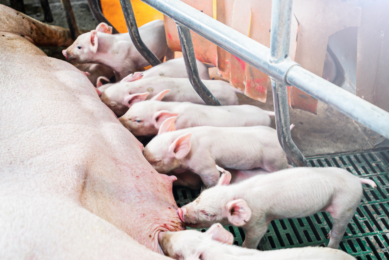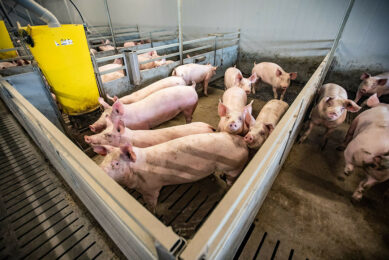Cargill: Q2 fiscal 2012 earnings
Cargill reported $100 million in earnings from continuing operations in the fiscal 2012 second quarter ended Nov. 30, 2011, an 88 percent decrease from $832 million in the same period a year ago. In the first six months, earnings from continuing operations were $336 million, compared with $1.53 billion in last year’s first half. Both the year-ago figures exclude earnings from Cargill’s former majority investment in The Mosaic Company.
Consolidated revenues in the 2012 second quarter were $33.3 billion, up 17 percent from $28.5 billion a year ago. First-half revenues totaled $67.9 billion, compared with $54.2 billion in the prior period.
“The second quarter was significantly below expectations, especially in contrast to last year when we posted our strongest quarter ever,” said Greg Page, Cargill chairman and chief executive officer. “Our food ingredients and agriculture services businesses generated solid earnings. At the same time, our commodity-based trading and asset management businesses faced significant challenges. First, commodity and financial markets were driven more by political uncertainties than by underlying supply and demand fundamentals. Second, our performance in the sugar market was poor. Additionally, our meat businesses on a combined basis experienced one of their weakest quarters. Finally, we recognized a significant number of one-time items, including asset impairments, and acquisition and integration expenses.”
Page said Cargill is actively working to reduce its costs and simplify its work processes, and he is optimistic about the company’s earnings prospects for the remainder of the fiscal year. “Cargill has been through difficult cycles before, made changes and emerged stronger for it. We are confident that the actions we are taking to create a more agile enterprise will better position us in the current economic environment.”
Page noted the fundamentals of Cargill’s business remain sound. Its diversified business model is backed by a strong balance sheet and excellent access to liquidity. The company maintains a disciplined approach to risk management, and it continues to reinvest in assets that strengthen its ability to be a reliable supplier and innovative partner to its customers globally.
On a segment reporting basis, the food ingredients and applications segment was the largest contributor to second-quarter earnings. The segment’s food ingredient businesses on a combined basis almost matched last year’s near record performance. Its global group of meat businesses was well off last year’s record earnings pace. The shrinkage in U.S. fed cattle supplies pressured margins in beef; other meat units also faced higher raw material costs.
Cargill’s recent acquisitions in food ingredients in Brazil and Europe, and in animal protein in Central America, were all accretive to earnings in the second quarter.
Earnings were solid in the agriculture services segment but lower than in the prior year, a period in which market opportunities for U.S. grain handling and export, and for global feed ingredient merchandising, were more favorable. Costs related to the acquisition of the Provimi animal nutrition company were recorded in this segment.
Earnings in the origination and processing segment were below last year’s exceptional results, reflecting the challenges of operating in commodity markets driven more by the volatile political environment than by the underlying supply and demand fundamentals. Additionally, performance in sugar negatively affected segment results.
Results within the risk management and financial segment were mixed. Strong performance in risk management services to customers was more than offset by weaker results in asset management due to the stress in global financial markets.
The industrial segment, which makes up a small portion of Cargill earnings, was moderately below the year-ago level due in part to higher freight expenses.
Cargill completed the acquisition of Provimi, a leading global animal nutrition company, for an enterprise value of $2 billion. The merger brings together Cargill’s expertise in compound feed, supply chain and risk management with Provimi’s nutritional expertise, technology and portfolio of premix, additives and feed ingredients. Now with more than 16,000 employees in 37 countries, the combined business has the scale, reach and capabilities to deliver innovative, high-quality products and services to customers worldwide.
Related website: Cargill











